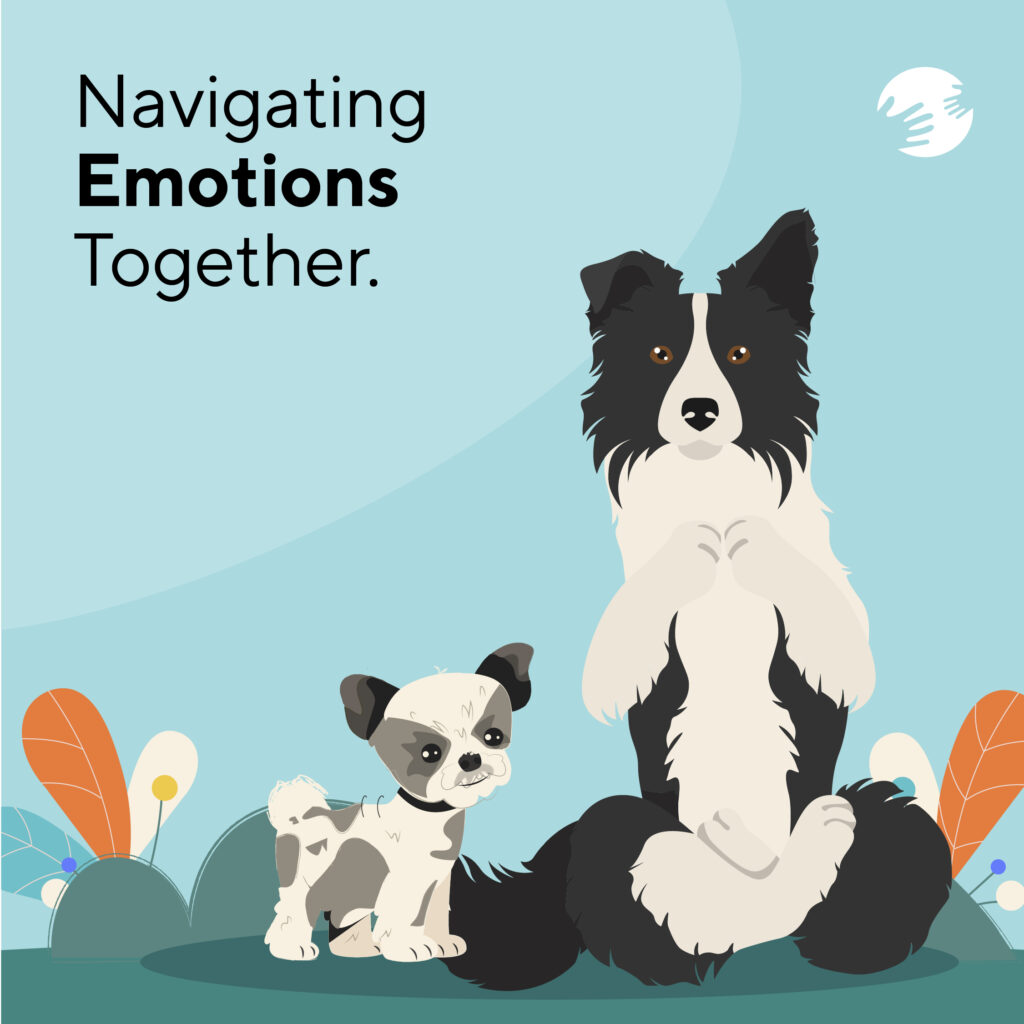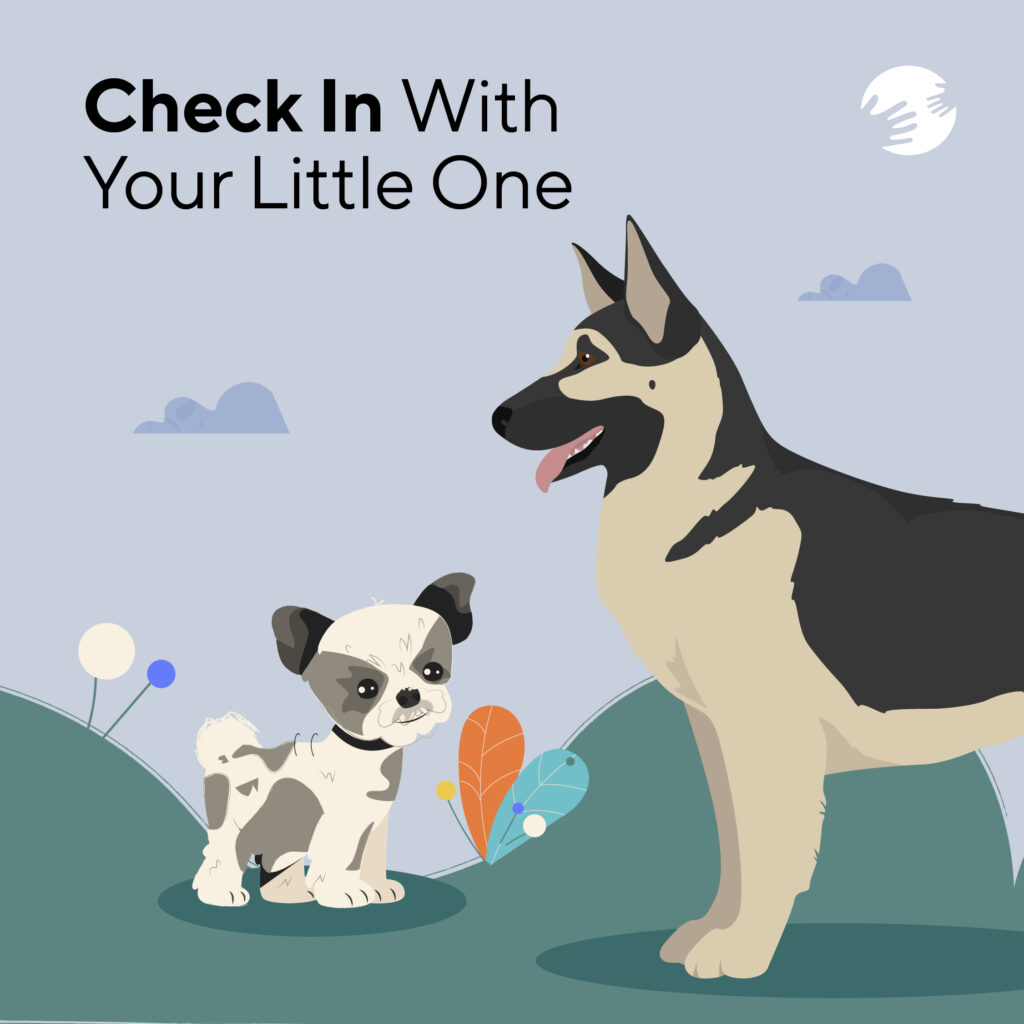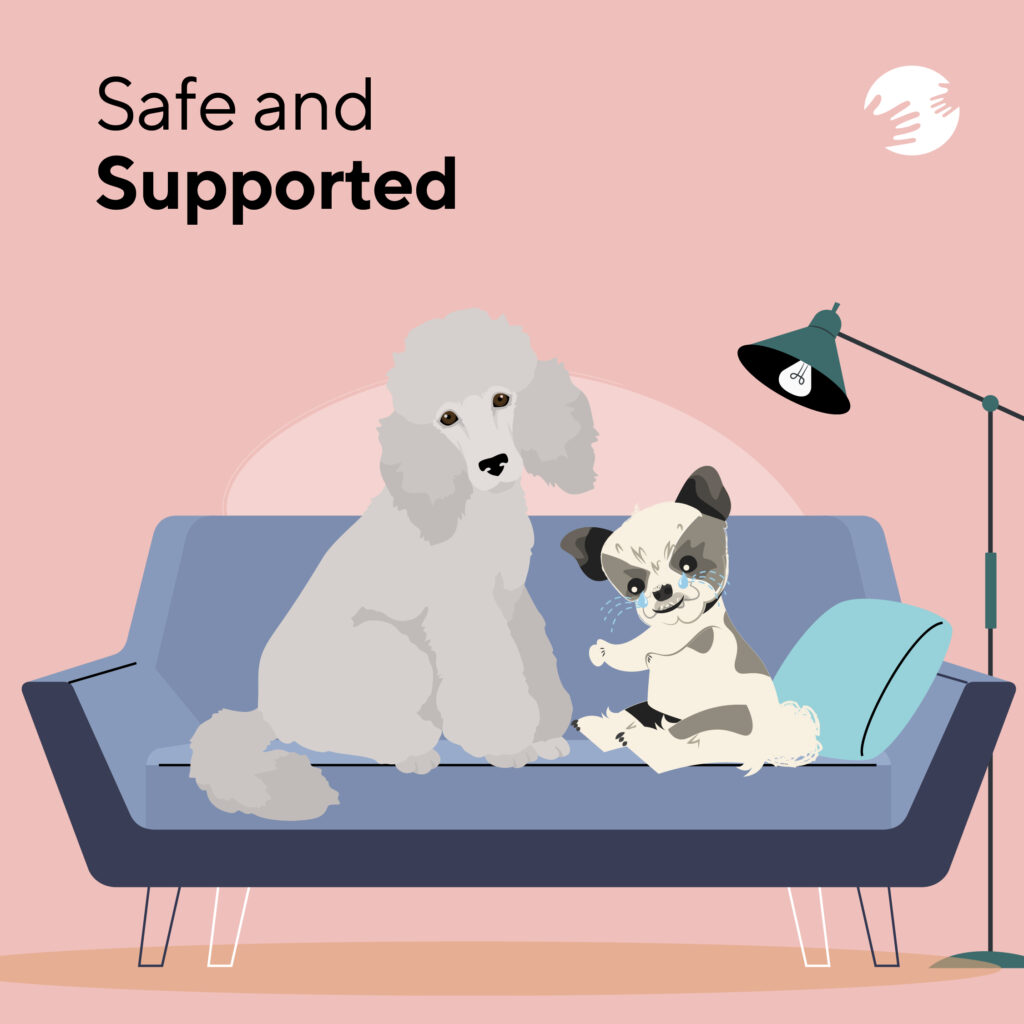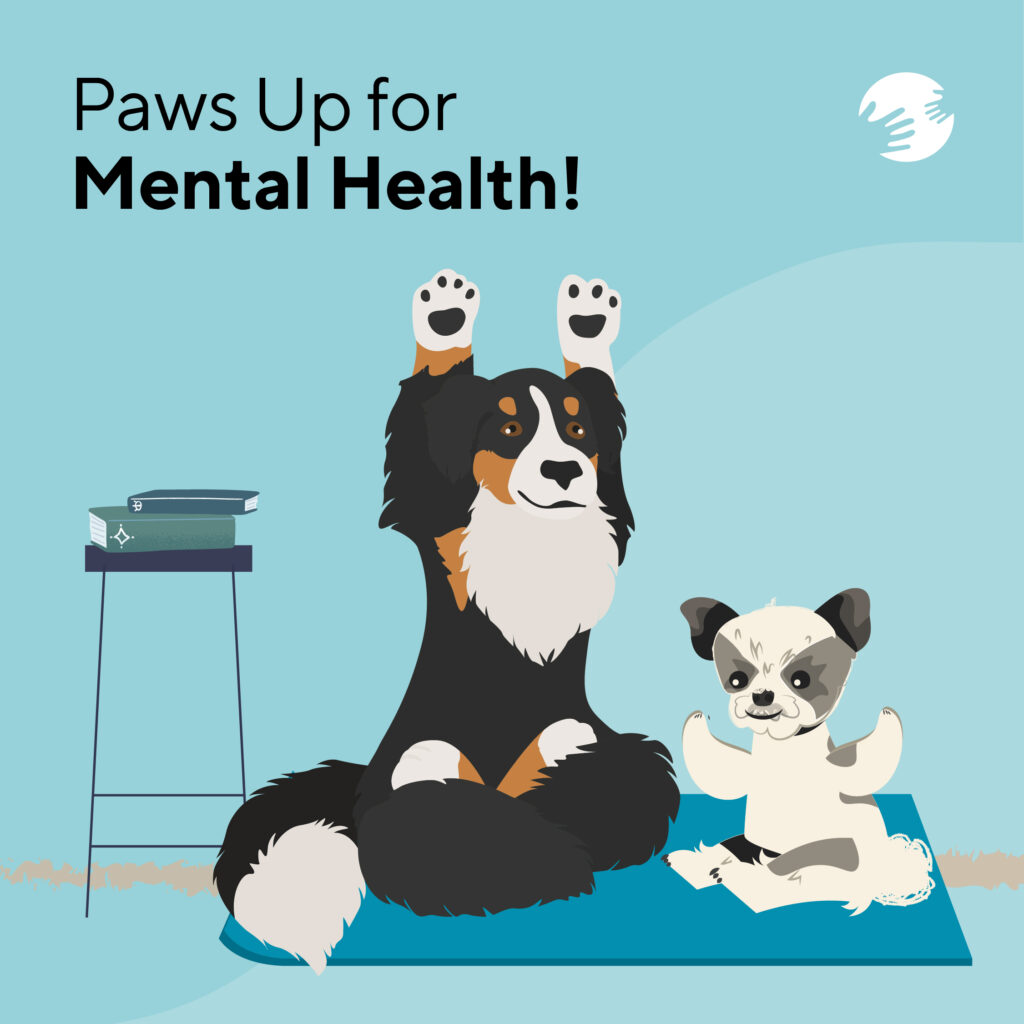
Gizmo’s Pawesome Guide to Mental Health – Early Childhood Introduction is designed for early childhood educators and home visitors to introduce children ages 3-5 to mental health concepts and teach them to take care of their feelings, thoughts, and actions. It was adapted from the Gizmo curriculum for school-age children to help young children understand their emotions, learn activities they can use to support their own well-being, and know how to identify and talk with trusted adults if they are struggling. It also teaches caregivers, professionals, and other adults about early childhood mental health, and the important role that adults play in supporting young children’s emotional wellbeing.
The following materials for the program can be downloaded below and printed for use.
- An activity book with information for caregivers, curriculum delivered in story form, and fun activities for young children. Parents and caregivers can also use the activity book with their child on their own.
- An implementation guide for teachers and home visitors with suggested approaches to delivery, activities, and family engagement
- Editable Templates for letters and activities to aid implementation
- Information for caregivers and trusted adults of young children
This Early Childhood Introduction was developed by the Child Health and Development Institute in partnership with the CT Office of Early Childhood. Funding was provided by OEC through the Center for Disease Control and Prevention’s Preventing Adverse Childhood Experiences Grant.
Social Media Posts

As children start to understand their own and others’ emotions, it can be helpful for them to know ways to work through those feelings. As a caregiver or trusted adult in their lives, you can teach your little one strategies they can use to take care of their emotional health and ask for help when they need it. Take Gizmo’s Pawesome Pledge for Mental Health with your child to learn more about some of the mental health strategies you both can try together at https://www.gizmo4mentalhealth.org/early-childhood/.

Participating in positive activities can help children learn skills to manage their emotions during difficult times. From coloring to hugging a stuffed animal to breathing exercises, there are all kinds of ways kids can relax themselves. By taking Gizmo’s Pawesome Pledge for Mental Health, you can learn more ways to help your child understand and use effective mental health strategies. Visit https://www.gizmo4mentalhealth.org/early-childhood/ to learn more.

Children may need help understanding how they’re feeling, and there are ways you can help them feel comfortable enough to talk about it. Discussing emotions with your child using toys or sharing your own emotions can help demonstrate to them how healthy expressing yourself can be. Take Gizmo’s Pawesome Pledge for Mental Health at https://www.gizmo4mentalhealth.org/early-childhood/ for more tips on how to talk to kids about mental health

When your child is feeling mad, sad, or worried, it can be helpful for them to know ways to calm down and feel grounded. As a caregiver or trusted adult in their lives, there are many ways you can support them in identifying their emotions and coach them through choosing healthy ways of coping. Take Gizmo’s Pawesome Pledge for Mental Health with your child at https://www.gizmo4mentalhealth.org/early-childhood/ to learn positive emotional health strategies you can try together.

When children are aged 3 to 5, they start to understand their own and others’ emotions. Gizmo’s Pawesome Guide to Mental Health can help providers and early childhood educators teach children skills that support their emotional knowledge and well-being. This guide also includes information about basic emotions, how to identify and connect with trusted adults during a difficult time, and positive activities kids can engage in to help them relax. Explore Gizmo’s Pawesome Guide to Mental Health for more tips and strategies you can share with the special children in your life: https://www.gizmo4mentalhealth.org/early-childhood/